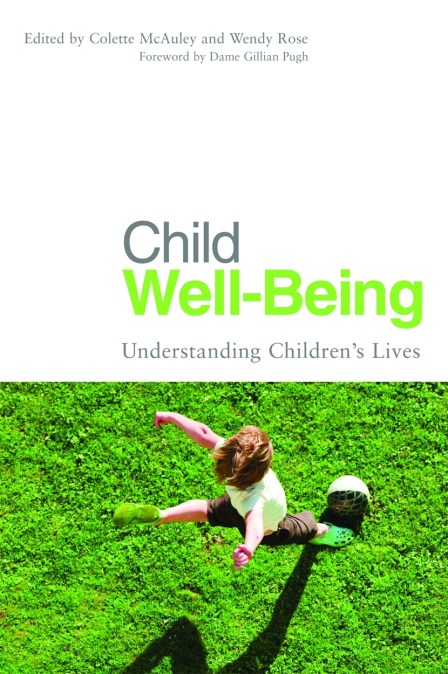Child well-being, which covers everything from family relationships to their material well-being, is now increasingly being talked about in policy and practice nationally and internationally. However, a lack of clarity remains about what the idea really means and how it can help children.
This book brings together contributions from international experts in order to define child well-being and to further understand how it can improve children’s lives. Issues covered include how the idea is being used in government policy and practice in the UK and USA, how children can contribute to the understanding of child well-being, recent advances in the exploration of indicators and measures of well-being, and the importance of context in making comparisons. A concluding chapter explores whether child well-being is a useful concept in understanding children’s lives, whether it positively contributes to policy and practice, and the value of international comparisons.
This edited collection is essential reading for all those involved in understanding children’s lives and who have responsibility for improving them, including practitioners, policymakers, students and academics.
This book brings together contributions from international experts in order to define child well-being and to further understand how it can improve children’s lives. Issues covered include how the idea is being used in government policy and practice in the UK and USA, how children can contribute to the understanding of child well-being, recent advances in the exploration of indicators and measures of well-being, and the importance of context in making comparisons. A concluding chapter explores whether child well-being is a useful concept in understanding children’s lives, whether it positively contributes to policy and practice, and the value of international comparisons.
This edited collection is essential reading for all those involved in understanding children’s lives and who have responsibility for improving them, including practitioners, policymakers, students and academics.
Newsletter Signup
By clicking ‘Sign Up,’ I acknowledge that I have read and agree to Hachette Book Group’s Privacy Policy and Terms of Use
Reviews
Child Well-Being, by editors Colette McAuley and Wendy Rose, provides a timely and well-informed text that offers essential reading about a notion - well-being - that, while in common currency, has been exposed to relatively little critical treatment of its value for driving policy, practice and research in children's services... The book casts much needed light on a central element of welfare discourse - well-being - and charts the likely direction of future debates in this field. Essential reading.
The collection is a welcome reminder of the need to re-order priorities with regard to children's lives and perceiving the issues... There is much in this book including a large research bibliography. It belongs in university libraries and in courses in sociology, politics and education.
This book brings together contributions from 16 international experts from Ireland, Israel and the United States, as well as the UK, in order to define child well-being and to enhance our understanding of children's lives and how they can be improved. Issues covered include whether the concept assist professionals such as social workers, teachers and youth tribute to the understanding of child well-being; and how the idea is being used in government policy and practice... Recommended if you want more depth in your understanding of children's well being.
The views of children and parents are discussed in some detail, as is the disparity between them, and an insight into the Children's Society's 2008 subjective well-being survey makes for interesting reading... The text makes for an interesting read for all those working directly with children.
